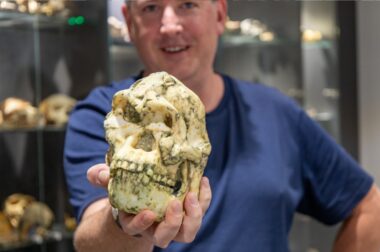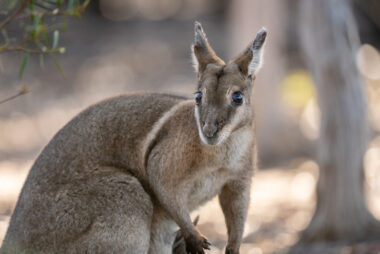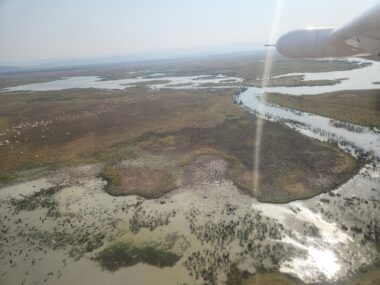A Charles Darwin University (CDU) researcher is part of an international team highlighting the global status of sharks that lurk in the deep waters of the ocean, discovering that the group is under threat.
CDU’s Research Institute of the Environment and Livelihoods (RIEL) Senior Research Fellow Dr Peter Kyne is a co-author of a paper published today in the prestigious journal Science titled; Fishing for oil and meat drives irreversible defaunation of deepwater sharks and rays.
The paper, a collaboration between the world’s leading shark experts, has calculated global biodiversity change indicators and threats to these deepsea species.
Findings suggest that an estimated one in seven deepwater sharks and rays are threatened with an elevated risk of extinction worldwide.
According to Dr Kyne, the dark waters of the oceans have not been out of reach of global fishing pressure and a combination of targeted fishing, incidental catch, and the sensitive biology of these species have caused severe population declines and even collapses in some species.
“Close to half of the world’s sharks, and their relatives, the rays and ghost sharks, occur in the deep oceans at depths below 200 metres,” Dr Kyne said.
“Living in the deep oceans unfortunately has not provided a refuge for some of the world’s most biologically unproductive species.”
“Many deepsea sharks have very few offspring after long pregnancies, so their ability to sustain fishing, whether they are caught as incidental catch in other fisheries (known as bycatch), or themselves targeted for their meat or liver oil, is extremely limited,” he said.
Dr Kyne, who has also co-authored a pioneering study highlighting the extremely limited abilities of deepsea sharks to recover after population depletion, highlighted the need for trade and fishing regulations to prevent irreversible damage to this species.
“Achieving sustainable fisheries for deep-sea sharks will be challenging and requires a precautionary approach to limit exploitation levels,” Dr Kyne said.
“Both national and international regulations are needed to reduce overexploitation and ensure sustainable trade where this is possible. For some highly sensitive species however, full protections are likely needed at national levels as well as international bans on trade.”
Spatial management will also play a key role in protecting areas of special importance for deepwater sharks and in a bid to protect these vulnerable animals, CDU is working with specialists around the world to identify such areas through the Important Shark and Ray Area (ISRA) project.
“The ISRA projects aims to map areas of critical value for sharks and highlight their importance for threatened species and areas critical for their life-history,” Dr Kyne said.
“Mapping such areas in the deep ocean will be an important step to ensure the recovery of at-risk deepsea sharks.”
The global assessment of shark status (including deepsea species) and the Important Shark and Ray Area are projects of the International Union for the Conservation of Nature (IUCN) Species Survival Commission Shark Specialist Group and were supported by the Shark Conservation Fund.
Contact details:
Emily Bostock
Acting Research Communications Officer
T: +61 8 8946 6529
M: 0432 417 518
E: [email protected]



